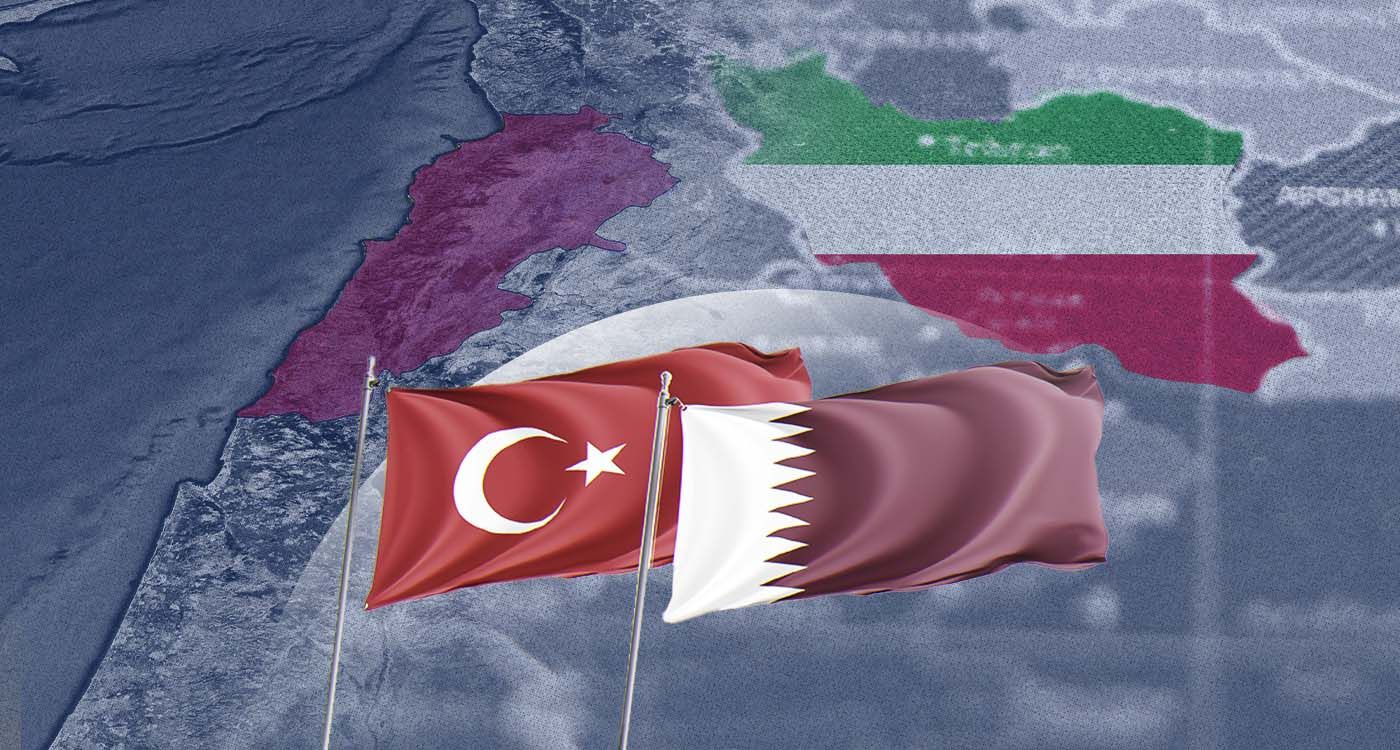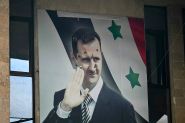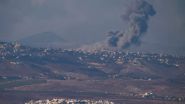
Lebanese Prime Minister Nawaf Salam, a Sunni, entered the stadium of Beirut’s Sports City to watch the classic football game between the two rival teams Nijmeh and Ansar. When the Shia supporters of Nijmeh saw Salam, they started shouting slogans in support of Hezbollah and its late chief Hassan Nasrallah. The Sunni fans of Ansar fired back, not by shouting Salam’s name or that of Saudi Arabia, as would have been expected. The Sunni crowd shouted “Jolani, Jolani,” invoking the nom de guerre of Syria’s self-declared president, Islamist Ahmad el-Sharaa. The political landscape in Lebanon is changing.
The results of the recent municipal elections in Lebanon confirm this shift. The Iranian Islamist regime and its allies, Hezbollah and Speaker Nabih Berri, lost ground to their opponents, who expanded their voting bloc up to 45% in the south and 35% in the Bekaa (east). Tehran’s retreat coincided with a surge in another radical Islamist brand, that of Turkey and Qatar, whose protégés swept to victory in most predominantly Sunni districts, especially in the north but not in Beirut.
The “Change bloc”, which rode a wave of frustration resulting from the 2019 economic meltdown and in 2022 won 13 lawmakers in the 128-seat Parliament, has collapsed.
Throughout Lebanon’s 15-year civil war, which ended in 1990, the country’s Sunnis were viewed as a pacifist bloc. The Sunnis are concentrated in the coastal areas, forming a majority in the three biggest cities of Beirut, Tripoli, and Sidon. Sunni communities, centered around the nation's ports, traditionally engaged in trade. Merchants are rarely fighters, or so the assumption went. Sunni leaders were notables from Ottoman times.
During the civil war, Lebanon’s Sunnis had a small, incompetent, and irrelevant militia, the Morabitoon, which barely controlled a street or two in West Beirut and was often beaten fast and hard by the Druze and the Shia militias.
After the civil war, the Sunnis rallied around a leader who looked like them: Rafic Hariri, a construction tycoon billionaire who had made his billions in Saudi Arabia. A UN tribunal found that Hezbollah, the Shia militia, assassinated Hariri in 2004.
The outbreak of civil war in Syria in 2011, saw Shia Hezbollah and its ally Bashar Assad prevail over the various Sunni militias, thus increasing Sunni frustration. Sunnis could not counter the prowess of Shia Iran or its allies and militias in the Levant.
But then, on October 8, Hezbollah started a war with Israel. The Jewish state crushed Hezbollah with such force that the once weak Sunni militias in Syria managed to overrun Assad and his regime. Syria thus changed hands from Shia Islamism to Sunni Islamism. Lebanon is not there yet.
The new rulers of Syria are sponsored by Turkey and Qatar. With Hezbollah weakened, now Turks and Qataris see an opportunity in trouncing Iranian Islamism in Lebanon too, as they did in Syria. When the Shia in Beirut shout “Nasrallah”, the Sunnis respond “Jolani”.
Perhaps the surge in Turkish and Qatari Islamism in Syria alarmed Saudi Arabia and prompted it to try to quickly curry favor with Sharaa. Riyadh threw its weight behind the new Islamist leader of Syria, intervening with Washington to lift sanctions and resume diplomatic ties.
In Lebanon too, Saudi Arabia scrambled to reconnect with past friends. Druze leader Walid Jumblatt, a wily character whose leadership is on the decline, was blacklisted in Riyadh for a long time, but has since been rehabilitated. It was only natural for Jumblatt to become the first Lebanese oligarch to visit Damascus and meet with Sharaa.
Saudi measures, however, seem to be improvised, not strategic.
October 7 changed Israel and its defense doctrine, from containment to preemption. This means that the Jewish state will continue pounding Hezbollah into oblivion. Like in Syria, Islamist Iranian retreat will create a vacuum in Lebanon that will be filled by Sunni Islamism as envisaged by Turkey and Qatar. Lebanon might therefore move from the tyranny of Nasrallah’s Shia Islamism to Chareh’s Sunni version.
What should Lebanon do? The best way out is for Beirut to shut down both forms of Islamism, Shia and Sunni. The faster Lebanon isolates itself from the region — Iran, Turkey, Qatar and also Saudi Arabia — the less likely it is to be dragged into the coming regional wars.
President Joseph Aoun can do Lebanon a great service if he acts proactively, rather than reactively, in extracting the country from endless regional turmoil. A peace treaty with Israel gives Lebanon more options in distancing itself from the region or at least allows Beirut to walk a fine line between the various warring parties.




Comments